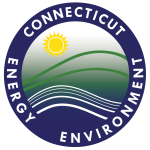Skilled Nursing & Senior Living Facilities



Nursing homes, like hospitals and other healthcare facilities, have a range of environmental impacts and issues that all contribute to harmful emissions and pollution. They operate 24 hours a day, 7 days a week and have:
- intensive energy, lighting, heating and cooling needs,
- generate large quantities of waste and recyclable materials including: trash; food and other organics; biomedical; universal; pharmaceutical; and hazardous wastes.
- regularly undergo renovation, newly constructed additions, and upgrades that involve a wide range of interior and exterior building materials and furnishings,
- deal with toxics from cleaning chemicals, and
- may also have mercury containing equipment such as blood pressure cuffs
CT DEEP is committed to providing assistance to nursing facilities to minimize waste, reduce energy usage, conserve resources, improve indoor air quality and lower emissions.
Pharmaceutical Waste:
NEW! A recently-passed federal regulation prohibits disposing hazardous waste pharmaceuticals to the sewer. Long-term healthcare facilities that have expired, unneeded or otherwise unwanted medications that are classified as hazardous waste may not dispose of them down the drain. Many healthcare facilities may have used this manner of disposal in the past and may not be aware that it is now specifically prohibited.
The federal regulation is EPA’s 2/22/2019 Final Rule on Management Standards for Hazardous Waste Pharmaceuticals. Specifically, this rule added a new provision at 40 CFR 266.505 which reads as follows:
§ 266.505 Prohibition of sewering hazardous waste pharmaceuticals. All healthcare facilities—including very small quantity generators operating under § 262.14 in lieu of this subpart—and reverse distributors are prohibited from discharging hazardous waste pharmaceuticals to a sewer system that passes through to a publicly-owned treatment works. Healthcare facilities and reverse distributors remain subject to the prohibitions in 40 CFR 403.5(b)(1).
For more information on this new requirement, see:
EPA’s Management of Hazardous Waste Pharmaceuticals
EPA Final Rule, especially Section XIII, starting on page 5892 of the preamble
Florida DEEP and the US EPA have lists of potentially-hazardous pharmaceuticals
Contact DEEP's Bureau of Materials Management and Compliance Assurance if you have specific questions.
NEW, April 2019!
Environmental Topics for Nursing Homes and Long Term Care Facilities - CT DEEP presentation given to Leading Age Facility Managers. Topics covered include: new EPA rule on pharmaceutical disposal and how it impacts facilities in CT, water conservation and buying less toxic products checklists, energy efficiency and portfolio manager benchmarking.
New Checklists Available
CT DEEP has developed two new Sustainability Checklists specific to nursing homes and senior living facilities on water conservation and buying green products. These checklists have also been reviewed by CT Department of Public Health. Water demands at nursing homes and senior living facilities tend to be high -- one room could use over 200 gallons of water per day. Fortunately, there are a variety of ways to save water and cut costs and options to use “greener” products that can reduce disposal costs and protect health and safety. You are encouraged to download these checklists and contact DEEP's Pollution Prevention office to receive assistance with measuring progress.
- How to Conserve Water at Skilled Nursing & Senior Living Facilities
- How to Buy Green Products for Skilled Nursing & Senior Living Facilities
Smart Energy Upgrades, Healthy Savings
The cost of investing in upgrades may seem out of reach, or just not in your capital budget. But, many facilities are finding ways to reduce energy use with low or no upfront costs through innovative programs from the CT Energy Efficiency Fund and the CT Green Bank.
Energy-efficient lighting, HVAC equipment, chillers, water heating, refrigeration controls, kitchen equipment, or renewable energy like solar power are examples of upgrades supported by Connecticut’s nationally recognized clean energy programs. You can benefit from cash incentives, process improvement programs, or overall project financing support. And, in many cases your investment costs will be fully covered by your monthly savings, so you’ll benefit from immediate improvements to cash flow.
- Find out how your facility can invest in smart upgrades and get healthy savings by visiting EnergizeCT healthcare page.
- Learn how to benchmark your facility to see how energy efficient it is and compare it with other similar facilities in US EPA's Energy Star Buildings program. Portfolio Manager is a free online tool to measure and track energy and water consumption, as well as greenhouse gas emissions.
Resources:
What You Need to Know About Solar for Your Facility
Case Study - Apple Rehab Laurel Woods Benefits from Energy Efficiency Upgrades
Reducing Waste, Increasing Recycling = $ Savings
- Reduce, Reuse, Recycle in Connecticut
- What Items Cannot Go Into the Trash
- Find out about CT's Mattress Recycling Program
Workshop Presentations:
Business Sustainability Roundtable Meeting for Skilled Nursing Facilities Presentations from 3/29/17:
- Apple Rehab / Laurel Woods Energy Benchmarking Report - Amy Thompson, Paguridae, LLC
- Energy Improvements at Duncaster, Bloomfield CT
- St. Joseph Residence Energy Achievements, Enfield Ct
Presentation for CT Association of Health Care Facilities, February 2016 quarterly meeting:
Why Skilled Nursing Facilities Should Care About Energy Use, Mary Sherwin & Connie Mendolia, CT DEEP
April 29, 2015 workshop at Leading Age:
- Energy Efficiency Financing Programs
- Randy Vagnini, Eversource
(860) 665-4753 randall.vagnini@eversource.com
- Dennis O’Conner, The United Illuminating Company
(203) 499-3715 dennis.oconnor@uinet.com
- Randy Vagnini, Eversource
- CT Green Bank C-PACE Financing
- Getting Started: Evaluating Your Facility’s Energy Performance
- ISE/BenchmarkCTHelp Center:
benchmark@energizect.com
860-465-0297 - Lynn Stoddard, Director
Institute for Sustainable Energy at Eastern CT State University
860-465-2813
stoddardl@easternct.edu
- ISE/BenchmarkCTHelp Center:
- It’s More Than Just Energy - Financing Other Sustainability Improvements
- Sample Action Plan, Blank Action Plan
- Contacts:
Contact connie.mendolia@ct.gov for additional information.
Content Last Updated August 2019

